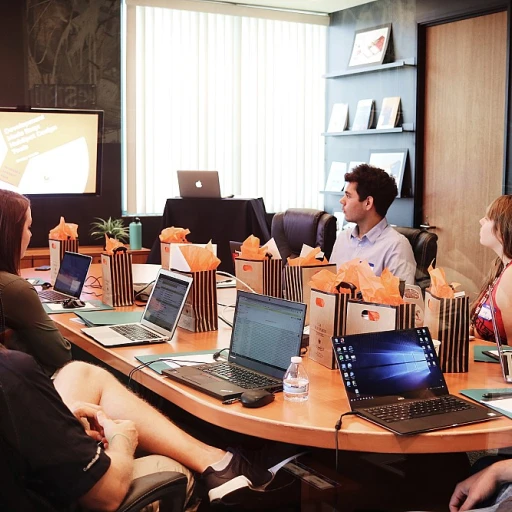The Heartbeat of Hospitality: Understanding the Hotel Desk
The Central Hub of Hospitality
The hotel reception desk is not merely a piece of furniture; it's the beating heart of a hotel's hospitality experience. It serves as the first point of contact for guests and often the last interaction before they depart. This part of the hotel journey is crucial as it sets the tone for the entire stay. The desk is where first impressions are made, and as the saying goes, you never get a second chance to make a first impression.
From the moment a guest steps through the doors, the hotel's reception desk becomes an essential part of their experience. Here, guests are greeted, checked in, and assisted with any queries or needs that arise during their stay. But the role of the reception desk goes beyond mere transaction; it's about creating an atmosphere of welcome and belonging.
Creating a Lasting Impact on Guests
A hotel desk is more than just a functional space. It embodies the values and culture of the establishment itself. The physical design and layout play a crucial role in shaping guest perceptions and experiences. Therefore, thoughtful design that considers accessibility, aesthetics, and functionality enhances both guest satisfaction and operational efficiency.
While design holds great importance, the real magic lies in the hands of well-trained desk personnel. These individuals, often referred to as the stars of the show, are integral to the hospitality experience. Their ability to connect with guests, address concerns, and deliver exemplary service defines the success of the desk's operations.
A nuanced understanding of the hotel's operational dynamics and guest expectations allows desk clerks to elevate service quality. This capability is closely tied to innovations in service processes and employee management. With the advent of technology, mastering the art of staffing and scheduling has become a pivotal aspect in running a seamless front desk operation.
Within this intricate web of responsibilities, the reception desk stands as a testament to the harmonious blend of service art and operational science, poised to evolve alongside the changing landscape of hospitality. As we explore further, it's clear that fostering pay equity in hospitality empowers desk clerks to perform at their best, creating an environment where both employees and guests feel valued. For more insights on the significance of fair compensation, check out the
power of pay equity software.
Design Matters: Crafting the Perfect Reception Desk
The Aesthetic and Functional Balance
The reception desk is much more than a place to check in and out; it stands as the focal point of any hotel lobby. Thus, its design should embody both aesthetic beauty and functional practicality to enhance the guest experience. When crafting the perfect reception desk, hoteliers should consider how well it complements the lobby’s overall ambiance while ensuring it efficiently accommodates all necessary operations.
Seamless Integration with Technology
Today, technology plays a crucial role in transforming the reception desk into a smarter, more responsive gateway for guests. This includes harnessing hotel management systems that streamline check-ins and check-outs, directly from the desk. By integrating advanced technology, the reception desk can effortlessly become an integral part of a hotel's operational strategy, ultimately contributing to improved guest satisfaction. For more insights on staffing and scheduling to support operations, visit our
comprehensive guide.
Materials That Make a Statement
Materials used in the construction of a reception desk also play a significant role in portraying the hotel’s brand and character. From luxurious marble to eco-friendly bamboo, the choice of material can either enhance the elegance or establish the hotel’s commitment to sustainability. The tactile experience afforded by various materials further enriches guests’ emotional connection to the space.
A well-designed reception desk is a powerful testament to a hotel's dedication to service excellence—whether reflecting traditional grandeur or modern simplicity—laying the foundation for memorable guest interactions.
Stars of the Show: Desk Clerks and Their Essential Role
The Unsung Heroes Behind the Counter
A guest's first impression of a hotel is formed the moment they approach the front desk, making the role of desk clerks absolutely crucial in the hospitality industry. These individuals are more than just the faces behind the counter; they are the linchpins that hold the entire guest experience together. From providing a warm welcome to addressing concerns, desk clerks set the tone for each guest’s stay.
Even though the design of the reception area plays a significant role in making a good first impression, it is the personnel that truly bring this space to life. Desk clerks possess a unique blend of communication skills, multitasking abilities, and a deep understanding of the hotel’s operations. They are trained to handle everything from late-night check-ins to complicated reservation issues with aplomb.
Empathy and Communication: The Hallmarks of a Great Desk Clerk
Communication is at the heart of a desk clerk's day-to-day duties. Whether it's fielding phone calls or engaging with guests in person, clear and effective communication can mean the difference between a satisfied guest and a frustrated one. But technical skill alone isn't enough; empathy and a genuine desire to assist are equally important. When issues arise, desk clerks must listen carefully, show understanding, and find creative solutions that meet both guest and hotel needs.
The ability to juggle multiple tasks is essential. From checking in guests and managing reservations to coordinating with housekeeping and other departments, the desk clerk's role is one of constant motion and change. Success in this role requires agility, adaptability, and decision-making competence under pressure, making it a dynamic and rewarding career for those who thrive in fast-paced environments.
For individuals interested in joining this dynamic field, exploring careers in
people operations may provide a stepping stone towards becoming a valuable asset in hospitality, blending interpersonal skills with operational expertise.
As we look to the future, the traditional role of the desk clerk may shift with technological advancements, but the essence of hospitality—warmth, service, and connection—will always remain at the forefront. The desk clerk continues to be an essential role, ensuring that the heartbeat of hospitality never skips a beat.
From Office to Hotel: The Evolution of the Desk
Tracing Back: The Evolutionary Path of the Hotel Desk
In unraveling the story of the hotel reception desk, we witness a fascinating journey of transformation, reflecting a broader evolution in the hospitality industry. From humble beginnings to the highly sophisticated systems of today, the hotel desk exemplifies how functionality marries innovation.
Initially, the reception desk served merely as a physical barrier—a place for guests to check in, pay for their stay, and leave. With little emphasis on guest interaction, early desks were stark, prioritizing practicality over comfort or design. As the demands of travelers grew, the hospitality industry adapted, and so too did the desk. It transitioned from a simple functional area into the 'heartbeat' of the hotel, as previously explored.
The shift gained momentum in the mid-20th century. With the rise of leisure travel, hotels began to recognize the need for an environment that welcomes, comforts, and assures. The reception desk became the guest's first point of contact with the hotel's brand, setting the tone for the experience.
Advancements in technology have significantly influenced this evolution. The introduction of computerized systems transformed desk operations, streamlining processes such as booking and check-in. This digitization has allowed desk clerks to focus more on personalized guest interactions, aligning with their essential role as the 'stars of the show'.
Today, we see yet another shift as hoteliers focus on creating more open, inviting spaces. The design of the desk has transcended mere aesthetics, becoming a critical component of the guest experience. This evolution continues as the industry delves into innovative trends, maintaining relevance in a fast-paced world.
As we look back on the rich history of the hotel desk, it serves as a testament to the industry's adaptability and guest-centric focus. Yet, even as we appreciate this journey, curiosity leads us towards the innovations shaping its future role in hospitality.
Beyond the Desk: Enhancing Guest Experience with Service
Beyond the Welcoming: Elevating the Guest Journey with Thoughtful Service
The hotel desk is more than just a place for check-in and check-out; it's the epicenter of guest experience. While the functionality and design of the desk serve as the framework for smooth operations, it is the personalized service that truly enhances a guest's stay.
Imagine arriving at a hotel after a long journey. You're greeted with a warm smile, and the desk clerk effortlessly manages your requests, from special accommodations to local dining recommendations. This is where the magic happens—at the intersection of efficiency and hospitality.
To elevate the guest experience, hotels are infusing the desk with services that go beyond simple transaction processing. Desk clerks are often trained to act as personal concierges, offering guests tailored advice and ensuring that each interaction is memorable.
Technology also plays a vital role in this transformation. Many hotel desks are integrating advanced software to keep track of guest preferences, enabling staff to offer personalized service even during busy periods. Such innovation ensures that each guest feels valued and appreciated.
The essence of hospitality lies in these thoughtful interactions, where the human touch complements the digital tools. As the heart of the guest journey, the hotel desk continues to evolve, providing a seamless blend of warmth, efficiency, and innovation.
The Future of Hotel Desks: Trends and Innovations
The Digital Revolution in Reception Areas
The reception desk, traditionally the cornerstone of personal interaction in hospitality, is undergoing a major transformation with the influx of digital innovation. From virtual check-ins to AI-driven concierge services, the contemporary hotel desk is being reinvented to enhance guest experience beyond anything imaginable in previous eras.
A Seamless Integration of Technology
As hotels strive to offer personalized and efficient experiences, technology becomes an increasingly essential part of the equation. Automated check-in kiosks, for instance, have begun to streamline the arrival process, making it quicker and less cumbersome for guests who prefer minimal interaction. Furthermore, mobile app integration allows guests to bypass the desk entirely, accessing room keys and other services directly from their smartphones.
AI and the Personalized Guest Experience
Artificial intelligence is revolutionizing the way hotels connect with their guests. AI-powered chatbots can provide 24/7 assistance, responding to guest inquiries and offering recommendations without delay. This not only frees up desk clerks for more complex tasks but also ensures that guests have constant access to help and information, pushing the boundaries of what service the traditional desk can offer.
Augmented Reality: The Future of Hotel Lobbies
The integration of augmented reality (AR) into hotel lobby designs is emerging as a novel way to engage guests and improve their experience. AR can be used to create interactive maps of the hotel, provide virtual tours, and even offer gamified experiences. Such innovations not only entertain guests but also provide valuable information and enhance their overall perception of the hotel.
Conclusion: A Blend of Tradition and Innovation
In summary, the future of hotel desks lies in a delicate balance between maintaining the personal touch and embracing technological innovations. While the desk will continue to play a pivotal role in hospitality, its function and appearance will evolve with advancements in technology, ultimately creating a more dynamic and responsive experience for the modern traveler. The essence of hospitality remains at the core, even as the methods of delivering it transform dramatically.








